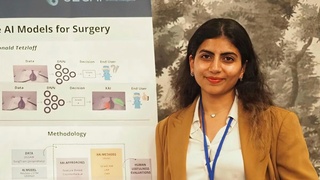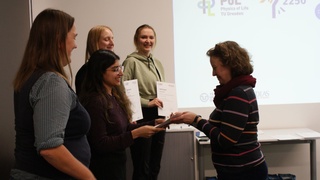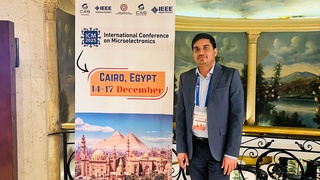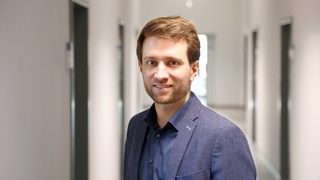 © Sebastian Weingart
© Sebastian Weingart
"Where Can I Study AI?"
A strong Master education on a high technical level is at the core of SECAI, and it is therefore a central objective of the School to strengthen the AI teaching in Dresden and Leipzig. Starting with the already existing teaching offers and research activities, SECAI strengthens the current study offers and creates new opportunities for both current students, who are already enrolled in AI-related study courses, e.g., „Computational Modeling and Simulation“ (Dresden) and „Data Science“ (Leipzig) , and future students, who want to study in Dresden or Leipzig.
Study Courses within SECAI:
- Bioinformatics (Leipzig University)
- Computational Modeling and Simulation (TU Dresden)
- Data Science (Leipzig University)
- Medical Informatics (Leipzig University)
- Nanoelectronic Systems (TU Dresden)
Bioinformatics
Location: Leipzig University | HomepageThis program brings together computer science and biology to focus on one of the most important and successful interdisciplinary fields in AI. Students acquire knowledge in the sciences, computing, and mathematics, and learn to combine their skills in relevant application fields.
Computational Modeling and Simulation
Location: TU Dresden | HomepageThis curriculum teaches the computational and mathematical foundations of Computational Modeling and Simulation across applications. This includes both learning of models from data (Data Science, Machine Learning, Inference) as well as computer simulations of models. Specialization and knowledge transfer is acquired in the application-specific Tracks.
Data Science
Location: Leipzig University | HomepageStudents of this MSc program focus on recent topics in data analytics, scalable data management, and data mining. This builds a bridge between fundamental AI methods and applications, e.g., in bioinformatics. An undergraduate education in computer science or biology is ideal for pursuing this specialization.
Medical Informatics
Location: Leipzig University | Homepage This interdisciplinary program incorporates many aspects of digital health and medical information systems. The interface of computer science and medicine defines the methodological center of the training, and also touches upon applications.Nanoelectronic Systems
Location: TU Dresden | HomepageThe ongoing miniaturisation in the microelectronics industry leads to systems that are now being referred to as nanoelectronic systems. Such systems are advantageous for a variety of applications, but their design and implementation is becoming increasingly complex. This programme focuses on three key areas: technologies for nanoelectronic systems, design of nanoelectronic systems and applications of nanoelectronic systems.
Fundamentals of estimation and detection, principles of dependable systems, semiconductor technology, hardware/software codesign, radio frequency integrated circuits. Students also have to choose courses from a variety of mandatory electives, among them: materials for nanoelectronics and vacuum technology, memory technology, optoelectronics, molecular electronics, etc.
The practical training (offered in parallel with theoretical concepts) develops skillsets and expertise that can be used during internships, project work, and the master’s thesis, which can be written at companies or research institutes.




